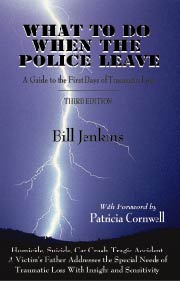Summer 2013
The state of Nebraska has passed into law legislation that brings them into compliance with the Miller v Alabama Supreme Court ruling against mandatory life sentences for teen killers.
NOVJL members expressed broad support for this action by Nebraska’s legislators and Governor because of three aspects of the new law:
1. It is not retroactive, protecting victims families and due process of law.
2. It gives judges options for shorter sentences than natural life that are still substantive: 40 years before parole is available.
3. It keeps LWOP (life without parole) sentences available for future cases where it might be appropriate for some convicted murderers.
NOVJL has been tracking these three trends nationally, finding most legislators, victims families, and legal experts agree that these three features make the best law.
LINCOLN — Gov. Dave Heineman signed a bill Wednesday ending mandatory life sentences for juvenile killers in Nebraska.
Legislative Bill 44, sponsored by Sen. Brad Ashford of Omaha, allows judges to sentence young killers to terms of from 40 years to life in prison. Under existing law, juveniles who commit first-degree murder must be sentenced to life without parole. The U.S. Supreme Court ruled last summer that judges must be given the latitude to consider a juvenile’s diminished capacity to control impulsive behavior. Laws that require life terms violate the Constitution’s ban on cruel and unusual punishment, the high court said.
Some lawmakers wanted a minimum term of 50 or 60 years. They said an inmate sentenced to 40 years could become parole-eligible after 20 years with good time.
Under the new law, judges can still choose to sentence juvenile killers to life without parole. Nebraska currently has 27 inmates serving life for crimes committed when they were 17 or younger.
April 2013
The Nebraska legislature has advanced legislation that many find too lenient for convicted first degree murderers. You are urged to contact the Nebraska legislature and the Governor to express your views on the legislation.
January 2013
This important news article summarizes the debate in Nebraska on the issue of life sentences for juvenile killers.
Report from NOVJL Member in Nebraska
Victim family member Sharon Hanke reports the following activity on JLWOP legislation in Nebraska:
After years of defeating legislation proposed to undo life sentences for teen killers, we are now in the process of proposing new sentencing legislation for the few teen killers in Nebraska that will comply with the Supreme Court’s ruling that natural life sentences for juvenile killers cannot be mandatory going forward. We will support the national consensus that life sentences should continue to be AVAILABLE as an option, and that alternative sentences should be available to Nebraska Judges going forward that are still substantive and lengthy for these most heinous offenses.
Our greatest concern: Victims families of these JLWOP cases in Nebraska have not been notified – the only way that victim family member Sharon Hanke found out was accidentally through news media coverage. We will insist that victim notification be a priority statewide until all stakeholders are working together to implement the Supreme Court ruling in a way that protects victims rights and public safety.
In January 2011 a Nebraska legislator named Council files LB 202 to end life sentences for teen killers. In April it was defeated soundly in committee.
Nebraska lawmakers killed a bill Thursday that would have granted commutation hearings to prison inmates serving life sentences for murders they committed as juveniles.
Lawmakers rejected the measure 18-24 amid concerns that it could create constitutional separation-of-power conflicts between the Legislature and the Executive Branch.
Omaha Sen. Brenda Council tied her legislation to last year’s U.S. Supreme Court ruling that overturned life without parole sentences for juveniles in cases where no one was killed.
“That universal fact is that, based on uncontroverted psychology and medical science, there is a fundamental difference between juvenile and adult minds,” Council said. “The areas of the juvenile brain that govern impulse control, regulate emotions, and regulate risk assessment and moral reasoning are still developing as late as age 20.”
The bill would have applied only to inmates who committed murders in Nebraska as minors. Council’s legislation would have allowed the Nebraska Board of Parole to consider an inmate’s criminal record as a juvenile, whether he or she acted alone, progress toward rehabilitation and other factors.
Inmates who committed their crime as a minor could ask Nebraska’s Board of Pardons to commute their life sentences, once they have served at least 20 years. Inmates would have to show they had no other violent felony adjudications before their murder conviction, that they committed the crime with at least one adult co-defendant, or that they have shown remorse and made progress toward rehabilitation.
If they met any of the criteria, the board would have to grant them a commutation hearing. Prosecutors and families of victims would have a chance to respond. [EDITOR’s NOTE from NOVJL: Victims Families that only get to chime in on this issue AFTER the legislation has passed are having their rights violated. Victims voices heard only after the decision is made to change the sentence are not meaningful! Victims voices are only meaningful if they can be heard while the decision to change the sentence is still being discussed!]
Inmates would have been able to submit a new request once every five years, until they have served 40 years. Speaker of the Legislature Mike Flood, of Norfolk, said the bill would effectively impose the Legislature’s will on the Board of Parole, which operates under Gov. Dave Heineman’s administration. Flood said he respected Council’s intent but that her legislation appeared unconstitutional.
“We do not let them tell us how to make decisions in here,” Flood said. “I don’t think we can go into the Executive Branch and tell them what they’re going to do, and what things they’re going to consider when determining whether or not they’re going to grant a pardon.”
Omaha Sen. Brad Ashford, who chairs the Judiciary Committee, said the bill balances the need for punishment with mercy in cases where the offender may not have fully matured.
“We cannot stumble in this effort to recognize the differences between juveniles and adults, even though in some cases we are dealing with juveniles who have committed heinous acts,” Ashford said.
Some senators also argued that 18 was an arbitrary cutoff age to gauge whether an offender’s mind was fully developed. Columbus Sen. Paul Schumacher said the complexity of developing brains makes it virtually impossible to know when an offender has matured.
The measure was introduced as an amendment to an unrelated bill that would have raised court fees.












